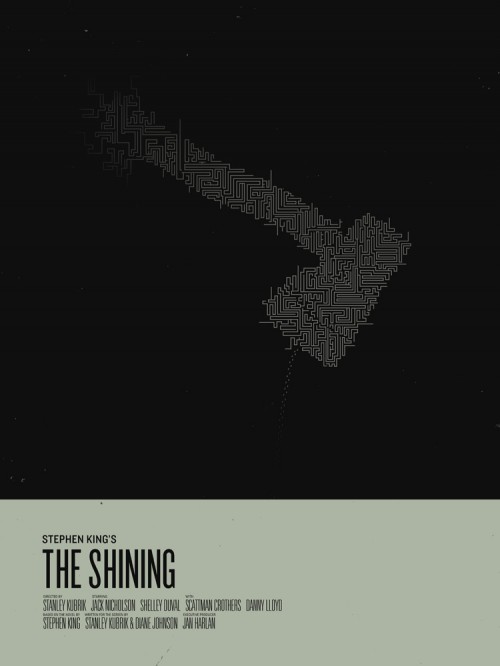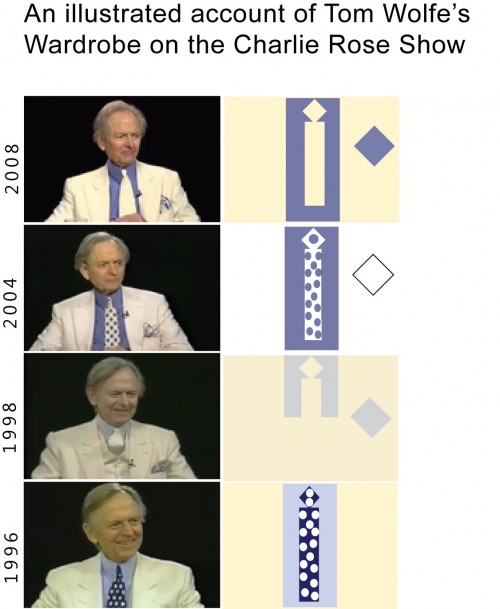Born Magazine’s “hyper” e-books [Example 1 | Example 2 | Example 3 | Example 4], self described as “cinematic and interactive interpretations,” are very impressive yet a little distracting. The traditional HTML versions — not because of content, but comparison — seem frigid, naked, unsure of their capacity. If the medium is the message, is the message that we’ve lost our faith in words? Or that we have some new killer software?

Designer Nick Tassone (alias bee combs) makes posters for films based off Stephen King novels, all of which I really like. They are conceptually gratifying and an unfortunate anomaly in the movie poster business; that these are from a school project make it that much more impressive.
How many drafts, on average, do you go through between the first “full” version and the final thing you consider publishable or done? Does this number increase or decrease with longer works?
One of the books I’ve most enjoyed in recent memory is Tina May Hall’s All the Day’s Sad Stories which has been out of print for some time now. This has been particularly frustrating as it has impeded by my efforts to evangelize about the book by sending it to everyone I know as well as a few strangers. Good news! That novella will now be re-released as part of May Hall’s short story collection The Physics of Imaginary Objects, which just won the 2010 Drue Heinz Literature Prize. I shall take to my pulpit, as should we all.
![]() Our boy Justin has a nice long podcast interview at Breakthru Radio, regarding mostly his on-fire Everything Here Is The Best Thing Ever. He also reads a full story from the book for your listening pleasure. If you haven’t caught wind of Justin’s firestorms of praise, and by god, picked up a copy of this beautiful thing, well, you should think about it. It’s every inch the hype portends.
Our boy Justin has a nice long podcast interview at Breakthru Radio, regarding mostly his on-fire Everything Here Is The Best Thing Ever. He also reads a full story from the book for your listening pleasure. If you haven’t caught wind of Justin’s firestorms of praise, and by god, picked up a copy of this beautiful thing, well, you should think about it. It’s every inch the hype portends.
“Writers are frequently seen as being unworldly figures, but, as it turns out, the White House and the CIA would have been better prepared for 9/11 if they had read American novelists and dramatists rather than field reports. After the attacks, the intelligence community reportedly consulted Hollywood screenwriters about likely future threats, having spotted that movies such as Die Hard anticipated the methods and level of terrorist threat to the US, but they might just as fruitfully have called in DeLillo, Charles McCarry and Kushner.”
A book you borrowed, never returned (not innocently or forgot; you damn well know it), still own (love?). Your chance to disclose. Go ahead:

